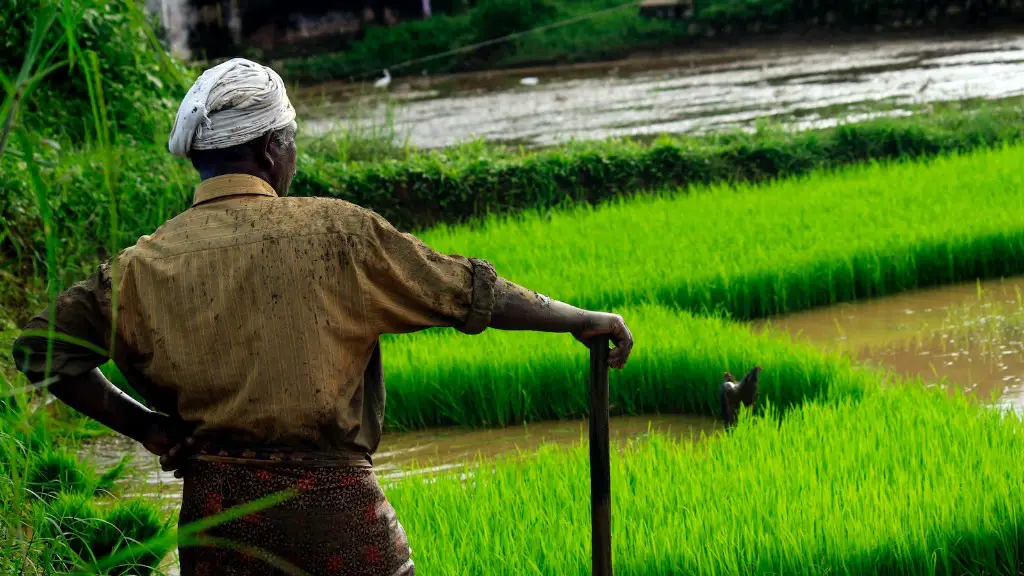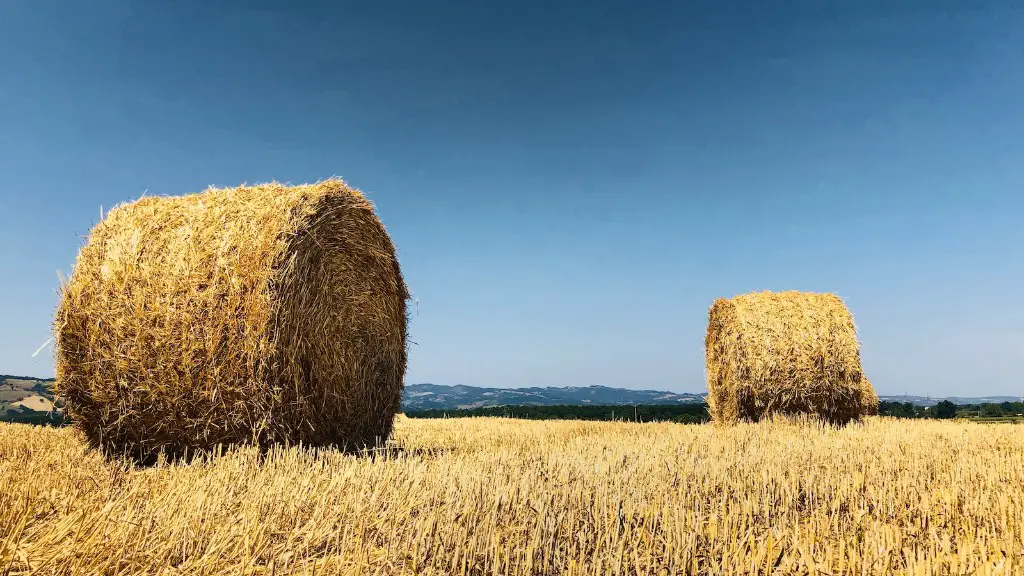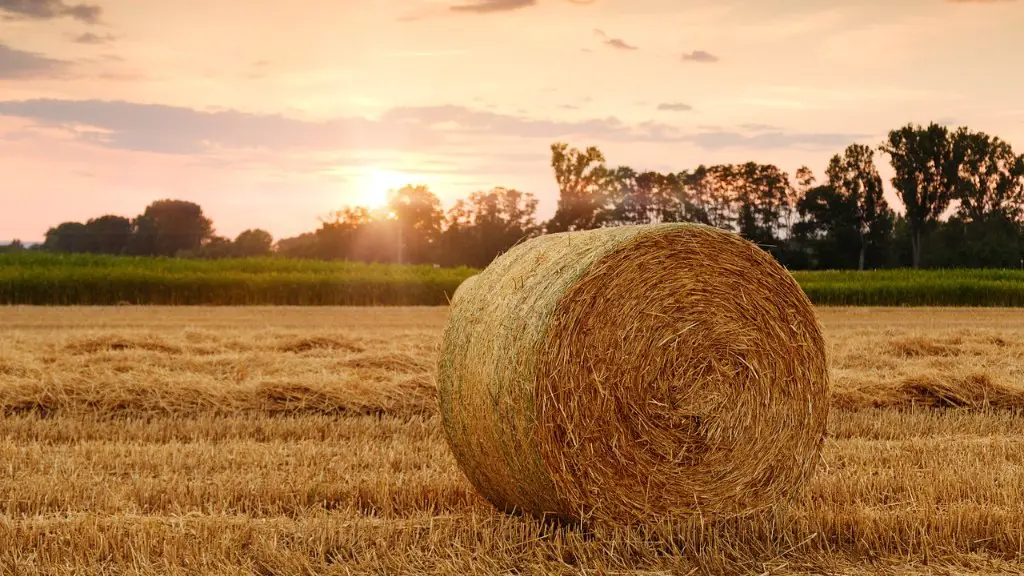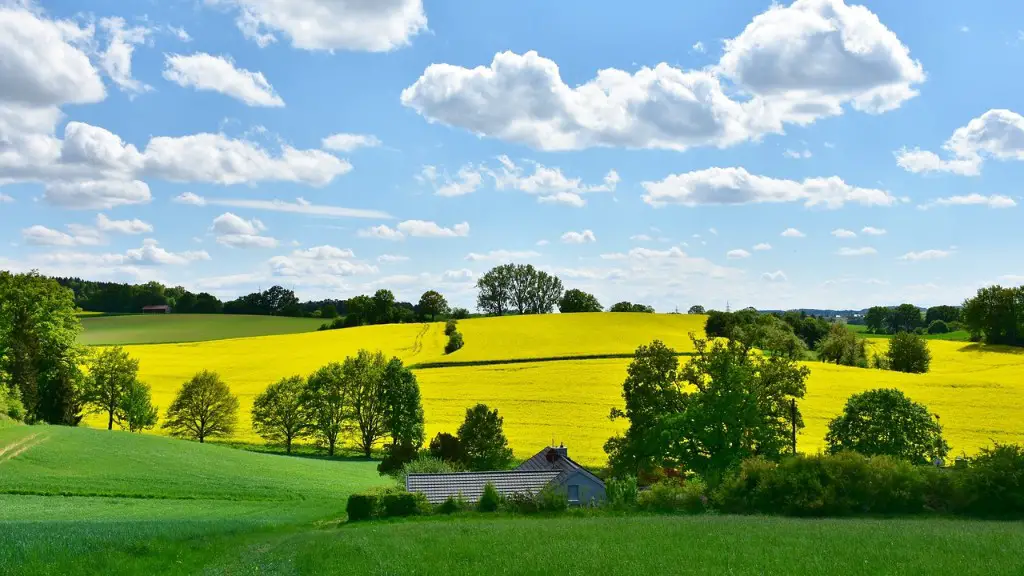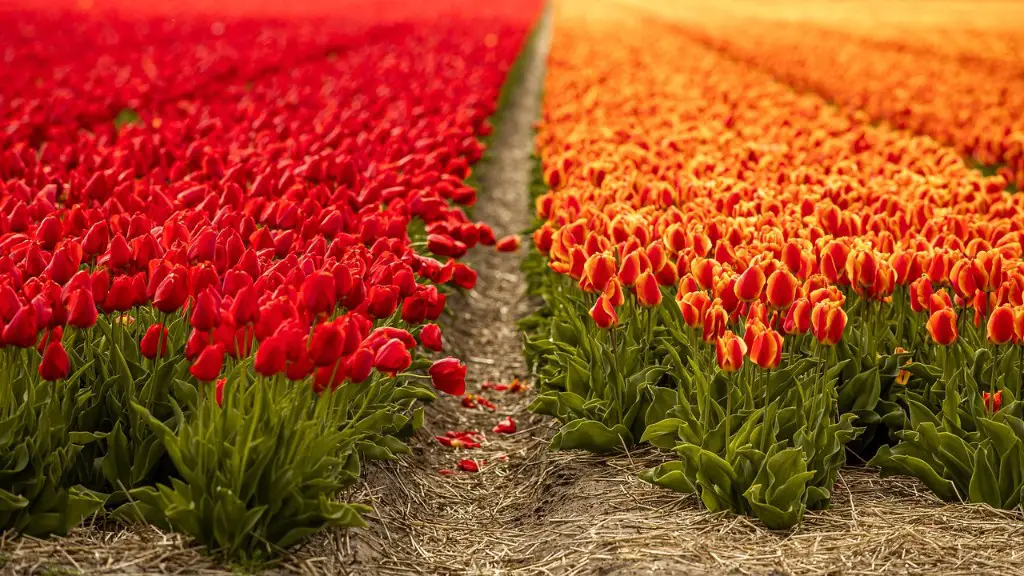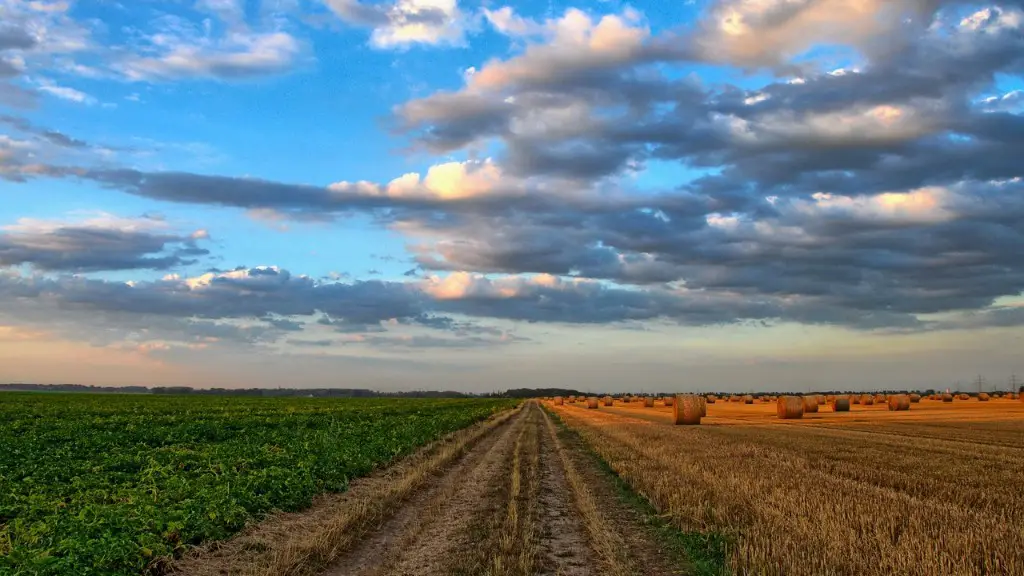Hydroponic agriculture is a method of growing plants in a soilless solution. The plants are grown in a nutrient-rich water solution, which can be either artificially created or derived from natural sources. Although hydroponic agriculture does not use soil, pests can still be a problem. To combat these pests, some growers use pesticides. However, there are also ways to control pests without the use of pesticides, such as using beneficial insects or keeping the growing area clean.
NO, hydroponic agriculture does not use pesticides.
Are hydroponically grown strawberries pesticide free?
This is an amazing feat that is being accomplished with hydroponics! Growing strawberries without soil or pesticides is a huge accomplishment that will help to provide people with delicious, fresh strawberries while also being more environmentally friendly.
Hydroponics is a method of growing plants in water without soil. While this method has many advantages, there are also some disadvantages to consider. One of the biggest disadvantages is that hydroponics requires a stricter control of irrigation. This is because the plants are not able to get the nutrients they need from the soil, so the irrigation must be carefully adjusted to meet the needs of the plant. Additionally, hydroponics requires the use of electricity to power the automatic irrigation system, which can increase the cost of installation.
What chemicals are used in hydroponics
Macronutrients are the elements that plants need in large quantities to grow and develop properly. They include carbon, hydrogen, oxygen, nitrogen, phosphorus, potassium, sulfur, calcium, and magnesium. Micronutrients are the elements that plants need in small quantities to grow and develop properly. They include iron, manganese, zinc, boron, molybdenum, chlorine, copper, and nickel.
Hydroponic nutrients are a great option for those looking for a safe and controlled way to feed their plants. Hydroponic plants are not exposed to pesticides, chemicals, diseases, and pathogens, making them a much safer option than plants grown using natural methods. Additionally, hydroponic nutrients are a highly effective method of feeding, especially when paired with additives, substrates, and proper equipment.
What are 2 disadvantages of growing crops hydroponically?
Hydroponics is a type of gardening that uses no soil, but instead grows plants in water with added nutrients.
There are several disadvantages to growing plants using hydroponics, including the following:
1. Expensive to set up: Compared to a traditional garden, a hydroponics system is more expensive to acquire and build.
2. Vulnerable to power outages: If the power goes out, hydroponics systems can quickly become unusable, as plants will begin to die without access to water and nutrients.
3. Requires constant monitoring and maintenance: Hydroponics systems need to be monitored constantly to ensure that the water and nutrients are at the correct levels, and that the plants are healthy.
4. Waterborne diseases: Because plants are grown in water, they are more susceptible to waterborne diseases. These diseases can spread quickly and affect plants in a hydroponics system more quickly than in a traditional garden.
5. Problems affect plants quicker: Because plants in a hydroponics system are grown in a confined space, problems such as pests or disease can affect the plants more quickly. This can lead to a quicker loss of plants in a hydroponics system than in a traditional garden.
Hydroponic crops are grown in greenhouses, in solutions of chemicals and minerals, not in soil. Just as with conventionally grown crops, growers often use synthetic pesticides on crops grown hydroponically.
Pesticides are designed to kill pests that can harm crops. However, some pesticides can also harm people and the environment. Synthetic pesticides are made from chemicals that are not found naturally in the environment.
Pesticides can enter the environment in a number of ways. They can be applied to the leaves of plants, where they can be washed off by rain or irrigation water and enter waterways. They can also drift through the air and be inhaled by people or animals.
Pesticides can have a number of harmful effects on people. They can cause skin and eye irritation, and they can be toxic if swallowed. Pesticides have also been linked to a number of health problems, including cancer, neurological damage, and reproductive problems.
Pesticides can also harm the environment. They can kill beneficial insects, such as bees and ladybugs, that help pollinate plants. They can also contaminate soil and water, and accumulate in the food chain.
There are a number of ways to reduce the use
Is hydroponic healthier than organic?
It is true that the fertilizers used in hydroponics are much more pure than those used in organic growing. However, they also have some drawbacks. For one, they can leave behind a residue in the cultivated produce. This can make the produce less healthy and flavorful. Additionally, they can also be more expensive than organic fertilizers.
This is a debate that has been going on for a while now, and there is still no clear consensus. Some studies have shown that hydroponically grown vegetables can be just as nutritious as those grown in soil, while others have shown that they are not. The bottom line is that it depends on the nutrient solution the vegetables are grown in.
What can go wrong with hydroponics
Hydroponics is a great way to grow plants, but there can be some problems that arise. Here are four common problems with hydroponics and how to fix them.
1. Root rot can occur if the roots of the plants are constantly wet. To fix this, make sure to aerate the roots and allow them to dry out between watering.
2. Mold growth can be a problem if the growing environment is too wet. To fix this, increase air circulation and make sure the plants are not overwatered.
3. Plant leaf issues can occur if the leaves are getting too much or too little light. To fix this, adjust the lighting accordingly.
4. Pests can be a problem in any growing environment. To fix this, use organic pest control methods and keep the area clean.
On the one hand, growing plants hydroponically can be cheaper and easier than growing them in soil. You don’t need to worry about soil quality, and you can control the amount of water and nutrients the plants get. However, hydroponic plants are often grown indoors, which means they may not get enough sunlight. You also have to be careful about the water quality, since the plants are only getting their nutrients from the water.
Is hydroponics cleaner than soil?
Water is an essential element for plant growth and nutrition. Soils can provide water to plants, but they can also be a host for many pests and diseases that can harm plants. Hydroponics growing mediums are inert and sterile which means the environment is very hygienic, which reduces the occurrence of pests and disease.
A hydroponic system can be regarded as organic if it can adhere to the NOP’s rules. Water replaces soil in the hydroponic system. As a result, plants can be grown in this soil-less medium as long as other factors, like a suitable pH, temperature, and nutrition, are provided.
What Cannot be grown in hydroponics
While there are many crops that can be grown hydroponically, there are some that cannot. Corn, for example, has extensive roots and requires plenty of natural light or sunlight. Potatoes and sweet potatoes are also not well suited for hydroponic growth, as they are large root vegetables. Vine crops like cabbage, pumpkin, and other gourds are also not ideal, as they require more space to spread out. Finally, squash and melon are not well suited to hydroponic growth due to their water requirements.
It is a common misconception that hydroponically grown crops are tasteless or “watered down”. However, this is no longer the case! In fact, crops grown in a local hydroponic vertical farm are often tastier and safer than those grown using traditional methods. This is because hydroponic farms can more easily control the quality of the water and nutrients used to grow their crops. Additionally, hydroponic farms typically use less pesticides and herbicides than traditional farms, making their crops safer to eat. If you’re looking for the best-tasting and safest produce, be sure to check for local hydroponic farms in your area!
Do hydroponics require pesticides?
Hydroponics is a great way to grow plants without the use of pesticides. The plants are healthy and thrive in this type of system, making them less likely to be attacked by pests.
Food grown in your house through hydroponics will have zero hazardous chemical pesticides in it. Pest infestation is also controlled by the fact that the hydroponics is a form of soilless farming, which restricts the risk of pest attacks.
Warp Up
Yes, hydroponic agriculture can use pesticides. Pesticides can help to prevent or control pests in hydroponic systems.
The jury is still out on whether or not hydroponic agriculture uses pesticides. Some studies show that it does, while other studies show that it doesn’t. However, the general consensus seems to be that hydroponic agriculture does use pesticides, albeit in smaller quantities than traditional agriculture.
